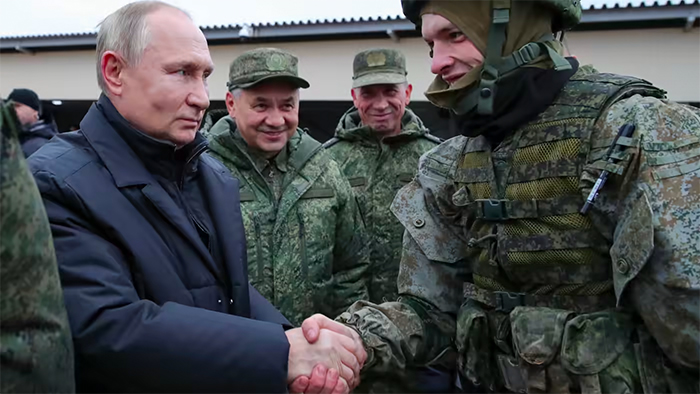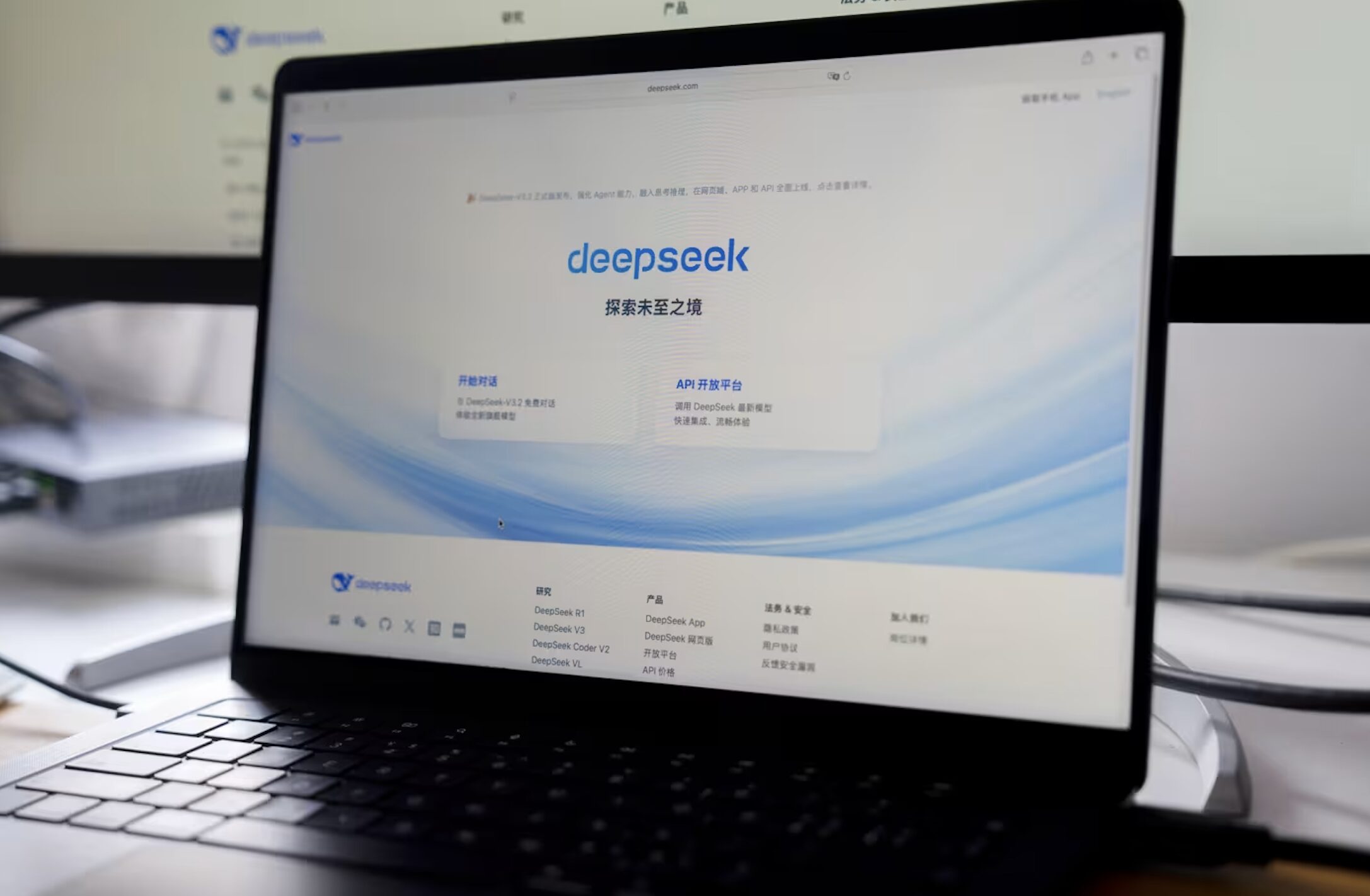
Dr. Sanjay Gupta: A New Way to Heal
Doctors have long prescribed pills and procedures. But for some people, that isn’t enough. Sanjay sits down with Julia Hotz, author of The Connection Cure, to explore the…
Thought Leader: Sanjay Gupta

Still unclear what might trigger move by Vladimir Putin…
Will Russia use a nuclear weapon in Ukraine? It is a question Western intelligence services are working on around the clock and that Western leaders are carefully weighing.
President Vladimir Putin has warned that Russia reserves the right to do so. As a result, even when he appears to talk down the possibility, the risk that we are closer to nuclear confrontation than at any time since the 1962 Cuban missile crisis becomes an inescapable reality.
On the one hand, Putin has few good options for winning his war. His military has demonstrated over the past nine months that it is incapable of achieving the objectives their leader has laid out.
Russian troops were not properly prepared for this conflict, their weapons are old and defective, the Ukrainians have fought back effectively, the West has armed and financed Ukraine’s government and military, and Russian morale is unsurprisingly low as a result. Russian troops may be able to defend some of the ground they took in the first weeks of the war, but they appear incapable of taking new territory.
Russia can inflict pain on the Ukrainian people, but it cannot defeat the Ukrainians on the ground. In short, Russia cannot win Putin’s war, and an emboldened Ukraine sees no reason to compromise.
Yet Putin’s rhetoric signals that his maximalist goals remain. He insists the U.S. is using Ukraine to cripple Russia and that only the total subjugation of Ukraine and its reintegration into a greater Russia can save his country. There is no public search for a compromise, which no one is offering in any case.
In addition, there are many voices in Russian media, including political and military officials, who echo the nuclear threat. In Russia, that is only possible because the Kremlin allows it.
There is no question the Kremlin is feeling pressure to show results in Ukraine. Putin understands that it is much easier to earn support for his war at home if it requires no sacrifice from the Russian people, and he may have been emboldened by Russia’s ability to absorb the first waves of Western pressure on his country’s economy to believe that he could win his war on those terms.
Since then, however, reality has intruded. Though he continues to insist Russia is not at war, Putin has had to order the mobilization of 300,000 more troops to prevent a military collapse. Russians can plainly see that many of their countrymen have headed for the borders to avoid service.
Putin can hide what is happening in Ukraine from the Russian people, but he cannot hide what is happening in Russia, and with no success to show for his special military operation, he is running out of ways to push Ukraine, Europe and America back on their heels. In short, Russia’s president has backed himself into a corner.
Might the use of a nuclear weapon against Ukraine offer him a way out?
Putin has made plenty of empty threats in the past. When the governments of Finland and Sweden first proposed joining NATO, Russian officials warned of unspecified catastrophic consequences.
The two countries applied for membership anyway, doubling the length of the Russia-NATO land border at a stroke. In response, Russia did virtually nothing, probably because it had no effective options.
In response to Ukraine’s recent advances against Russian troops, Putin announced the annexation of four Ukrainian provinces that include much territory that his soldiers do not, and cannot, control. By insisting this land was now part of Russia, he claimed that any continuation of the war in these areas would draw a forceful Russian military response.
Ukraine and its Western backers made immediately clear they had no intention of respecting these claims and called Russia’s bluff by continuing the war as before. Russia has launched artillery attacks against Ukrainian cities and important infrastructure targets, but none of these responses make much difference in the balance of power on the battlefield.
When Russian ships in the Black Sea were attacked with nautical drones, Russia renounced its support for a deal brokered by the U.N. and Turkey that allowed Ukrainian grain to leave port for sale in other countries.
The implicit threat was that Russia might attack the ships. The shipments continued anyway, and Putin, realizing that attacking cargo ships filled with grain bound for hungry people in other countries served no purpose, reversed course again.
At what point do all these defeats, bluffs called and humiliations lead Putin to think the unthinkable? Putin’s true red line might be the border of Crimea, the peninsula that Russia seized and annexed in 2014.
Western governments have taken note of the effort that Russian officials have made to warn that Ukraine might use a dirty bomb to force overwhelming Western retaliation against Russia. No one in Washington or in European capitals believes Ukraine will use a radiological weapon against its own people to fool them into attacking Russia, but some worry the Kremlin has pushed this story to boost its own deniability in the court of global public opinion if Russia itself were to use such a weapon.
A further question: How would the West respond if Russia did use a dirty bomb or tactical nuclear weapon? Political leaders themselves will not say, but most well-informed military analysts say the U.S. would not respond with a nuclear weapon of its own or attack Russian territory.
But it would attack Russian positions inside Ukraine, damage or destroy Russia’s Black Sea fleet, and quickly end the war in Ukraine’s favor. That is certainly the message Washington wants the Kremlin to hear and consider.
In that truly awful scenario, the world would find itself in uncharted territory. The risks would be much higher than in 1962.
During the Cuban missile crisis, there was just one casualty — the pilot of an American spy plane. No one knew about that loss until after the crisis was resolved. The scenario mentioned above in Ukraine would leave thousands of dead Russian soldiers and a gutted Russian army and navy. This is not a scenario that anyone in power in Moscow, Washington or Europe is prepared to see.
Yet this is the risk the world now faces. There is no sign Russia has changed the alert level of its nuclear forces. The risk is low, but not nearly low enough, given the stakes.
In the coming weeks, winter will come to Ukraine. The fighting will slow. In the main, the war will freeze. But this will only delay careful consideration of the nuclear risk, one we will all be living with for some time to come.
Dr. Sanjay Gupta: A New Way to Heal
Doctors have long prescribed pills and procedures. But for some people, that isn’t enough. Sanjay sits down with Julia Hotz, author of The Connection Cure, to explore the…
Thought Leader: Sanjay Gupta
Mike Pence Talks Trump’s Foreign Policy
Former US VP Mike Pence discusses President Trump’s foreign policy with Greenland, Russia, and Ukraine. He says he commends President Trump on finding a framework…
Thought Leader: Mike Pence
Chris Miller: What We’ve Learned from the DeepSeek AI Shock
One Year After DeepSeek, America’s AI Lead Still Holds When Chinese AI lab DeepSeek released its R1 reasoning model last year, markets panicked. Nearly $1…
Thought Leader: Chris Miller

